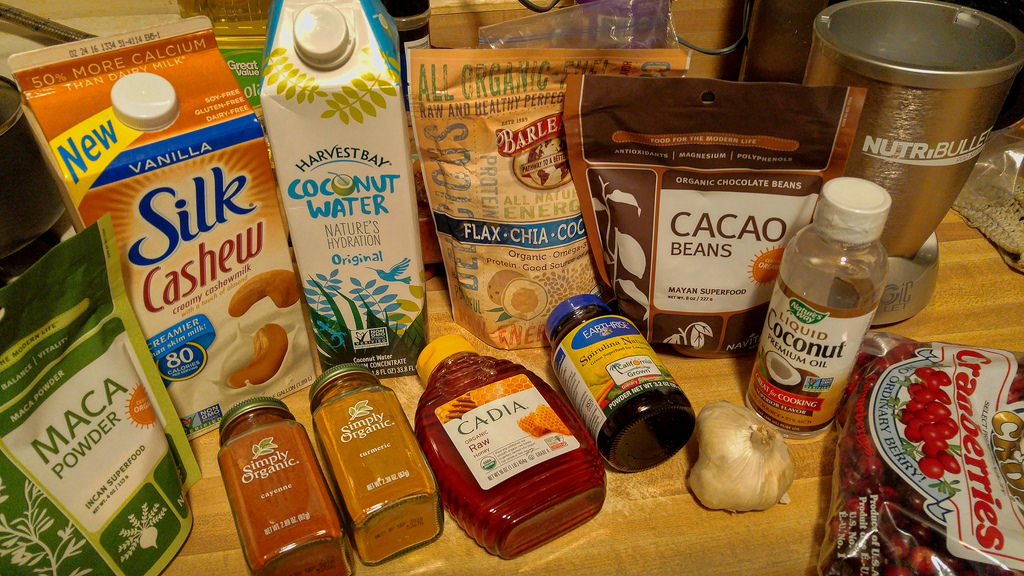“Food trends have mixed impact on the public”
November 18th, 2016 Cultural ideas around food are subject to change, thanks to a fast-moving globalised world. But as Ashley Foster-Estwick, 25, a Correspondent from Barbados explains, disrupting old food cultures can leave populations at risk with poor health and unmet needs.
Cultural ideas around food are subject to change, thanks to a fast-moving globalised world. But as Ashley Foster-Estwick, 25, a Correspondent from Barbados explains, disrupting old food cultures can leave populations at risk with poor health and unmet needs.
Culture is usually defined as the ideas and attitudes that form the habits of a particular sect at a time in history. Applying this definition to food, I summarise food culture as the ideas and attitudes to food cultivation from production to table, the connection to what methods and practices go into food production and the habits formed around eating what has been produced.
Our motivation to desire food has not been removed, nor will it ever be. Maslow defined this in his hierarchy of needs, food including water is a basic and immediate need for survival.
Yet in the 21st century, globalisation and the post-industrialisation era has rendered food to move beyond a slow moving process to fast food, instant mixes, and ready meals. It incorporates many non-sustainable methods from pesticide use and high sugar content as a preservative to excessive food packaging.
Our desire for foreign cuisines and addictive foods and drinks such as carbonated beverages, which have now written their existence into pop culture and invaded the homes of millions, continuously sparks health trends from kale super salads to lemon cleanses and wheatgrass shots with the aim of combating the invasion of the sugar and artificial preservative demons.
However, this begs the question: do these health trends address root issues of food intake, or are they merely surface level and privy to a few in the top one per cent income bracket?
As citizens of an island with a mere 166 square miles and a population at risk for diabetes, cancer and cardiovascular disease, this question must be addressed. Our food culture attempts to consider that racial disparities render the majority of our population more susceptible to diabetes and other non-communicable diseases. With $75 million spent on diabetes management in Barbados, at the turn of the 21st century it is clear that a problem exists in our eating habits and lifestyle choices.
The Barbadian food culture – or lack thereof – is a complicated issue. The small landscape of Barbados translates into no real regional or inter-parish differences between food production and preferences. Older generations of Barbadians enjoyed the fruits of their labour in a true farm-to-table experience, subsisting on ground provisions incorporating recipes of the island’s colonial heritage.
Today, the post colonial landscape of the West Indies propels tourism as the main driver of the economy. Our combined Caribbean Community food import bill as of 2014 stood at US$4.25 billion. This is a clear reflection our food culture has become a hybrid one reliant on foreign products. National dishes which continue to be prepared similarly to former days ensure that food remains more than an individualistic necessity, but a tool to shape identity and bring together our community. However, as another segment of our population continues to follow trends from overseas, food becomes a pleasure-seeking tool which often times can become a status symbol or, if in excess, a hindrance to our public health. There are three main reasons this hindrance can occur – little to no education, economic status and age.
The prevalence of non-communicable diseases in Barbados affects older generations, but we need to analyse how these diseases affect our pre-teens and teens. The most recent Global School-based Student Health Survey purports that more than 31 per cent of Barbadian students between 13-15 years were overweight and 73 per cent drank more than one carbonated beverage daily.
Global health trends range from eating gluten free, veganism, soup cleanses to eating a strictly raw diet. How can trends become standards instead of what they are now – ‘trends’ to benefit a wider cross section of the population? The direct linkage between eating a cleaner diet to having better health is obvious, but what can be done to make any new culinary trends more accessible? What keeps many back from accessing these products?
The age and job factor: the economic insecurity of Barbadians has left many of our youth underemployed and unemployed. With little to no financial security, accessing food imports which have become luxury goods is often out of reach. There are no discounts or food stamps for goods or food services which become status symbols. Secondly, once news of a trend spreads, to what extent does one know that the ingredients or information is accurate if they have little to no knowledge about basic food and nutrition?
On an island where a majority of the populace does not understand how to read food labels, or have no interest in the ingredients in foods cultivated from countries miles away, food trends which seek to better health will not get to the root cause of poor eating habits. Trends will never work for all citizens until a gap is closed on essential food laws – such as accurate food labels, regulation of the agricultural sector, and basic nutrition curriculum at the primary school level.
Reach me on Twitter @MissAshleyFE
photo credit: raymondclarkeimages Affordable Health Care via photopin (license)
…………………………………………………………………………………………………………………
About me: I was born and raised on the island of Barbados. While writing has always been an outlet for my creative ideas or thoughts, I never fully pursued it as a career. Instead I have studied business, languages and politics.
I work in administration and management sectors, hoping to use these skills to cross over into the management of public health. My hope is to use this platform as a way to stimulate conversation with my peers and reenergise my writing.
…………………………………………………………………………………………………………………
Opinions expressed in this article are those of the author and do not necessarily represent the views of the Commonwealth Youth Programme. Articles are published in a spirit of dialogue, respect and understanding. If you disagree, why not submit a response?
To learn more about becoming a Commonwealth Correspondent please visit: http://www.yourcommonwealth.org/submit-articles/
…………………………………………………………………………………………………………………






